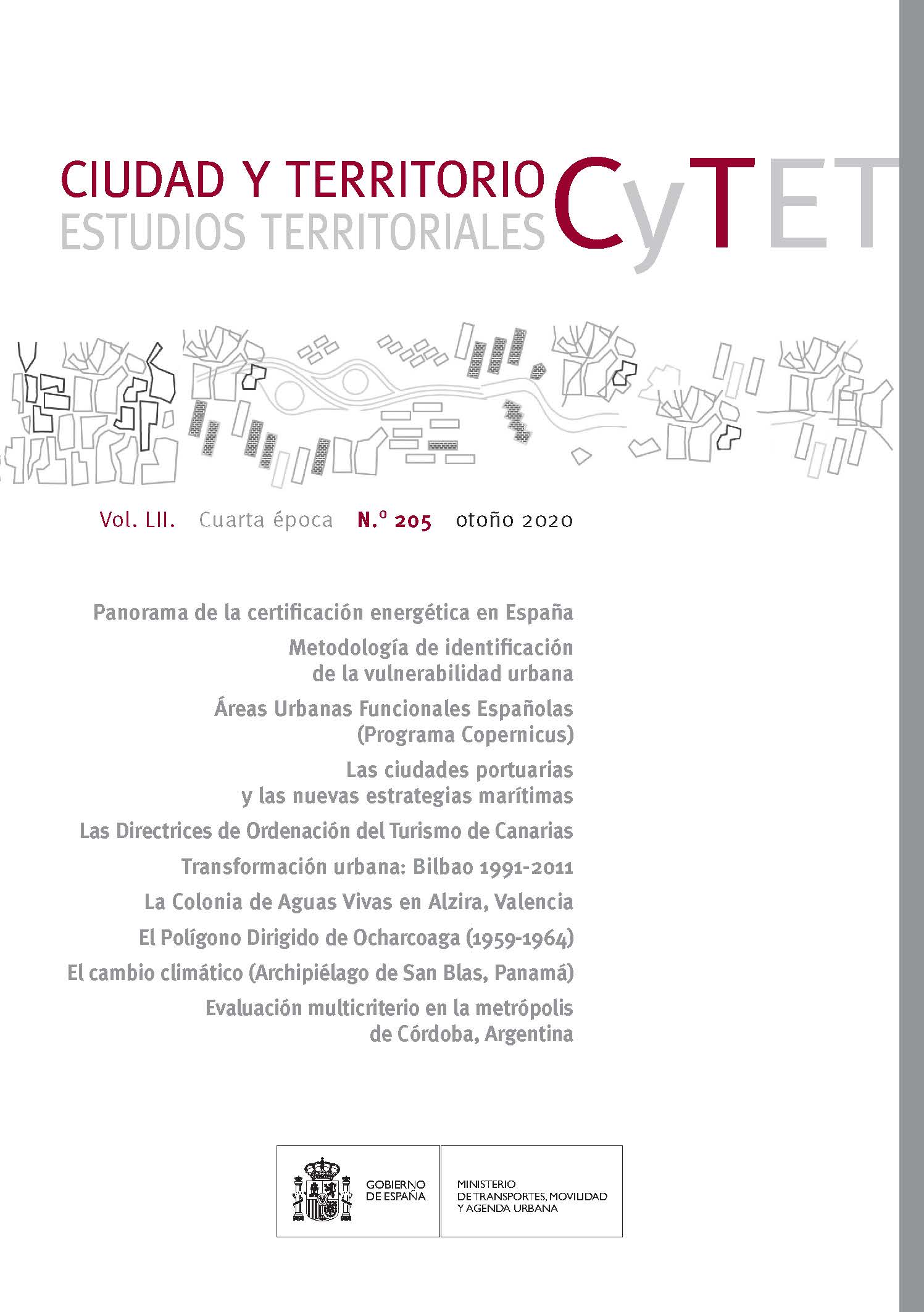The Urban Planning Instruments in Spain: Comparative study (I)
DOI:
https://doi.org/10.37230/CyTET.2020.205.11Keywords:
Territorial and urban planning; Urban planning instruments: Master Plans: Sustainable developmentAbstract
The New Urban Agenda of the United Nations approved in Habitat III (2016), considers that “the reactivation of integrated and long-term urban and territorial planning and design […]” are key elements of the new urban paradigm worldwide. The long tradition of the Spanish urban system and the extensive and complete regulation that regional laws make on planning instruments, suggest that Spain is in an advantageous situation in the matter. However, as reflected in the diagnosis of the Spanish Urban Agenda (SUA), the reality is quite different and shows the lack of flexibility and excessive complexity of many Spanish urban plans. This comparative study, which is divided into two parts, wants to delve into this diagnosis, offering precise evidence on the planning situation, and highlighting some of the changes and innovations that are beginning to be sensed in urban planning legislation, that is -at the same time- heterogeneous in the formal, and very conservative in its material aspects. To carry on with this tasks, the first part of the study identifies the basic State framework with an impact on planning regulations, followed by the analysis and the classification of planning instruments in all the Autonomous Communities and the contents of general planning instruments. The second part of the study will focus on the administrative procedures of the plans and their documentation
Downloads
Published
How to Cite
Issue
Section
License
Copyright (c) 2020 Sonia Hernández-Partal

This work is licensed under a Creative Commons Attribution-NonCommercial 4.0 International License.
Considering the provisions of the current legislation on Intellectual Property, and in accordance with them, all authors publishing in CyTET give -in a non-exclusive way and without time limit- to the Ministry of Transport, Mobility and Urban Agenda the rights to disseminate, reproduce, communicate and distribute in any current or future format, on paper or electronic, the original or derived version of their work under a Creative Commons Attribution-NonCommercial-NoDerivative 4.0 license International (CC BY-NC-ND 4.0), as well as to include or assign to third parties the inclusion of its content in national and international indexes, repositories and databases, with reference and recognition in any case of its authorship.
In addition, when sending the work, the author(s) declares that it is an original work in which the sources that have been used are recognized, committing to respect the scientific evidence, to no longer modify the original data and to verify or refute its hypothesis. Author(s) also declare that the essential content of the work has not been previously published nor will it be published in any other publication while it is under evaluation by CyTET; and that it has not been simultaneously sent to another journal.
Authors must sign a Transfer of Rights Form, which will be sent to them from the CyTET Secretariat once the article is accepted for publication.
With the aim of promoting the dissemination of knowledge, CyTET joins the Open Journal Access (OA) movement and delivers all of its content to various national and international indexes, repositories and databases under this protocol; therefore, the submission of a work to be published in the journal presupposes the explicit acceptance by the author of this distribution method.
Authors are encouraged to reproduce and host their work published in CyTET in institutional repositories, web pages, etc. with the intention of contributing to the improvement of the transfer of knowledge and the citation of said works.








 Enlace a CyTET en Linkedin
Enlace a CyTET en Linkedin